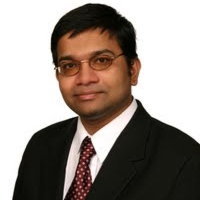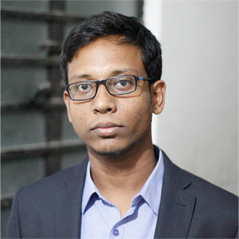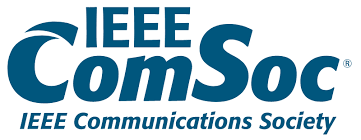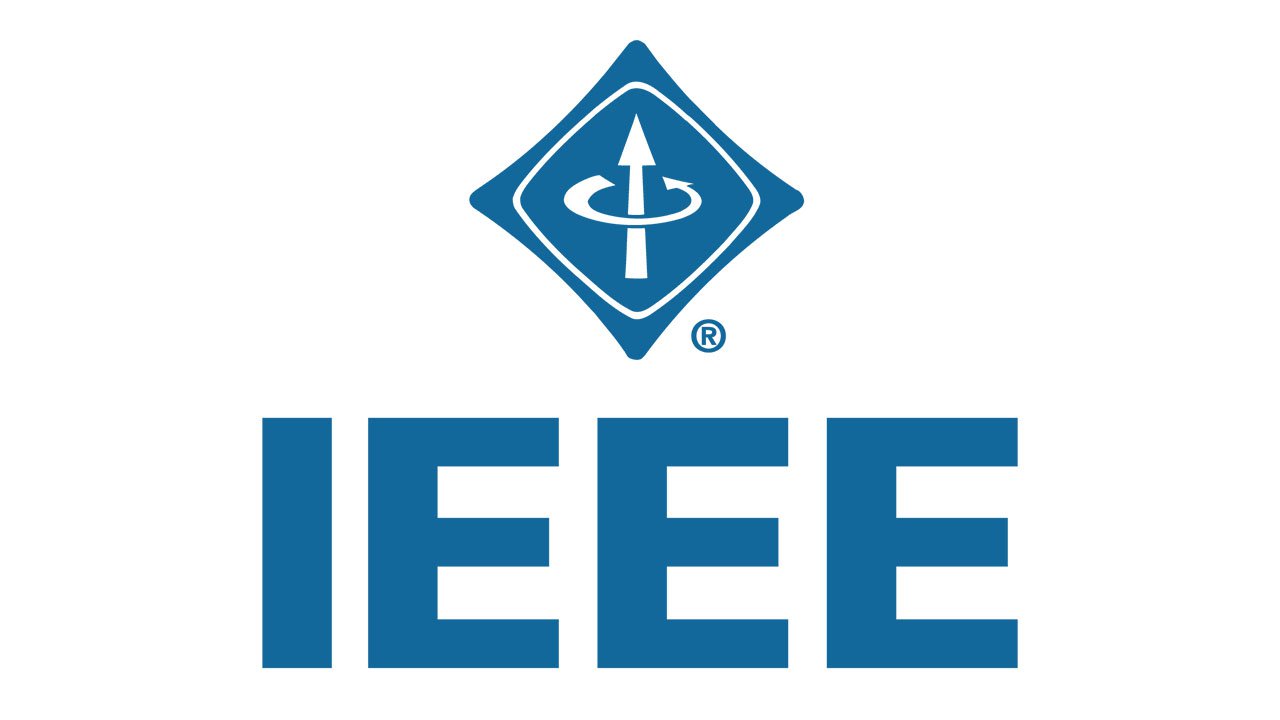To access the recorded session of this webinar, please click here
Cyber-Physical-Social Systems: System Design and Data Analytics
|
Abstract: This talk will present our latest research on the following two direction of Cyber-Physical-Social Systems (CPSS): 1. the effective and efficient approaches for CPSS modeling and general system design automation methods, as well as methods analyzing and/or improving their power and energy, security, trust and reliability features; 2. the Big Data-as-a-Service framework, which includes data representation, dimensionality reduction, incremental and distributed processing, security and privacy, deep learning, clustering, prediction and proactive services, aiming at representing and processing big data generated from CPSS, providing more valued smart services for human and refining the previously designed CPSS.
Corresponding case studies in some applications such as smart traffics will be shown to demonstrate the feasibility and flexibility of the proposed system design methodology and analytic framework.
|

Professor Laurence T. Yang
FCAE, FEIC, MAE, FIEEE, FIET
Department of Computer Science
St Francis Xavier University, Canada
|
Brief Bio: Dr. Laurence T. Yang is a professor and W.F. James Research Chair at St. Francis Xavier University, Canada. He has published 250+ papers in the Cyber-Physical-Social Systems area on top IEEE/ACM Transactionsincluding 7 and 28 papers as top 0.1% and top 1% highly-cited ESI papers, respectively.
He has been involved actively as a chair of 4 IEEE Technical Committees and a steering chair for 10+ IEEE international conferences, invited to give around 50 keynote talks at various international conferences and symposia.
He is a member of Academia Europaea, the Academy of Europe (2021), a fellow of Institution of Engineering and Technology (2020), Institute of Electrical and Electronics Engineers (2020), Engineering Institute of Canada (2019),Canadian Academy of Engineering (2017), respectively.He is the recipient of the John B. Stirling Medal (2021) from Engineering Institute of Canada, IEEE Sensor Council Technical Achievement Award (2020), IEEE Canada C. C. Gotlieb Computer Medal (2020), etc.
|
Blockchains with AI for Risk Management in IoT [Slides]
|
Abstract: Blockchain has found numerous applications in Fintech, Supply chains, and contracts because it is an ideal distributed consensus where all nodes agree on the validity of transactions in a block without needing a central trusted party. The consensus is binary - agree or disagree - True or False. In this era of big data, we need to move blockchains beyond data storage to provide knowledge. In the real world, there are many situations in which various sensors may not fully agree, and their measurements may be probabilistic, leading to probabilistic agreements. In this talk, Prof. Jain will present his recent extensions using AI that allow blockchains to be used for decisions that may not be binary. These extensions enable blockchains to be used for risk management when the group sizes are large. In particular, Prof. Jain will describe numerous use cases of this idea. Such situations frequently arise in security applications.
|

Professor Raj Jain
Life Fellow of IEEE, a Fellow of ACM, a Fellow of AAAS
Barbara J. and Jerome R. Cox. Jr. Professor
Computer Science and Engineering
Washington University in St. Louis
|
Brief Bio: Raj Jain is currently the Barbara J. and Jerome R. Cox, Jr., Professor of Computer Science and Engineering at Washington University in St. Louis. Dr. Jain is a Life Fellow of IEEE, a Fellow of ACM, a Fellow of AAAS, a recipient of the 2018 James B. Eads Award from St. Louis Academy of Science, 2017 ACM SIGCOMM Life-Time Achievement Award. Previously, he was one of the Co-founders of Nayna Networks, Inc., a Senior Consulting Engineer at Digital Equipment Corporation in Littleton, Mass, and then a professor of Computer and Information Sciences at Ohio State University in Columbus, Ohio. With 37,000+ citations, according to Google Scholar, he is one of the highly cited authors in computer science. Further information is at http://www.cse.wustl.edu/~jain/index.html.
|
Machine Learning for Multi-Access Edge Computing and Autonomous Driving
|
Abstract: The last decade has witnessed an unprecedented improvement and prosperity of machine learning techniques and applications. Such rapid development is heavily dependent on the tremendous available data generated by the ever-increasing number of mobile devices, like the Internet of Vehicles. To relieve the computation pressure and reduce the latency, multi-access edge computing has emerged as a promising paradigm for real-time mobile services. One of the typical edge computing-assisted applications is autonomous driving, which is computation-intensive, memory-consuming, and latency-sensitive. In this talk, we will discuss two main topics, i.e., the edge resource resources reservation for autonomous vehicles and low latency edge computing assisted high definition map updating mechanism.
|

Professor Zhu Han
Fellow IEEE, Fellow AAAS
John and Rebecca Moores Professor
University of Houston,
Houston, TX
|
Brief Bio: Zhu Han (S’01–M’04-SM’09-F’14) received the B.S. degree in electronic engineering from Tsinghua University, in 1997, and the M.S. and Ph.D. degrees in electrical and computer engineering from the University of Maryland, College Park, in 1999 and 2003, respectively.
From 2000 to 2002, he was an R&D Engineer of JDSU, Germantown, Maryland. From 2003 to 2006, he was a Research Associate at the University of Maryland. From 2006 to 2008, he was an assistant professor at Boise State University, Idaho. Currently, he is a John and Rebecca Moores Professor in the Electrical and Computer Engineering Department as well as in the Computer Science Department at the University of Houston, Texas. His research interests include wireless resource allocation and management, wireless communications and networking, game theory, big data analysis, security, and smart grid. Dr. Han received an NSF Career Award in 2010, the Fred W. Ellersick Prize of the IEEE Communication Society in 2011, the EURASIP Best Paper Award for the Journal on Advances in Signal Processing in 2015, IEEE Leonard G. Abraham Prize in the field of Communications Systems (best paper award in IEEE JSAC) in 2016, and several best paper awards in IEEE conferences. Dr. Han was an IEEE Communications Society Distinguished Lecturer from 2015-2018, AAAS fellow since 2019 and ACM distinguished Member since 2019. Dr. Han is 1% highly cited researcher since 2017 according to Web of Science. Dr. Han is also the winner of 2021 IEEE Kiyo Tomiyasu Award, for outstanding early to mid-career contributions to technologies holding the promise of innovative applications, with the following citation: "for contributions to game theory and distributed management of autonomous communication networks."
|
Hosts
 |
Sudip Misra, PhD, Fellow IEEE, FNAE, FNASc, FIET, FBCS, FRSPH, FIETE
ACM Distinguished Member
Alexander von Humboldt Fellow (Germany)
IEEE Communications Society Distinguished Lecturer
Professor & INAE Abdul Kalam Technology Innovation National Fellow
Department of Computer Science & Engineering
Indian Institute of Technology
Kharagpur-721302
West Bengal, India
Official Website: https://cse.iitkgp.ac.in/~smisra/
SWAN Group: https://cse.iitkgp.ac.in/~smisra/swan/
|
 |
Dr. Arijit Roy
India-France Raman-Charpak Fellow,
Former Senior Research Fellow, Council of Scientific & Industrial Research
Post-Doctoral Research Fellow
Parallel Computing and Optimisation Group
University of Luxembourg, Luxembourg
Website: www.arijitroy.info
|
 |
Dr. Ayan Mondal
Assistant Professor
Department of Computer Science and Engineering
Indian Institute of Technology Indore
Khandwa Road, Simrol, Indore 453552, India
Website: https://www.iiti.ac.in/people/~ayanm/
|
Webinar Registration
All participants need to pre-register by 5 PM (IST), December 9, 2021 by filling-up the following form: Registration Link
WebEx sign-in details will be shared with the registered participants using the email address provided in the registration form.
The Webinar flyer is available here.









